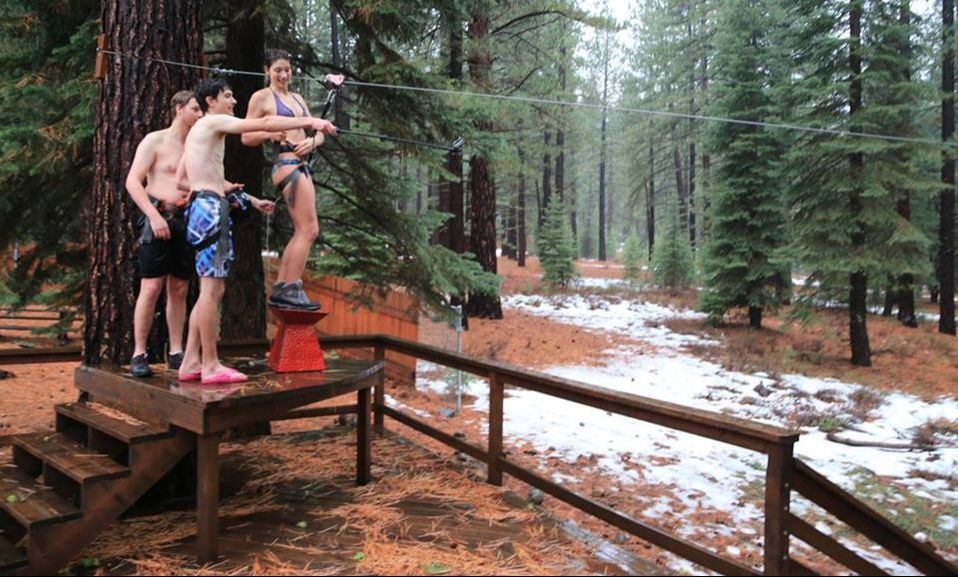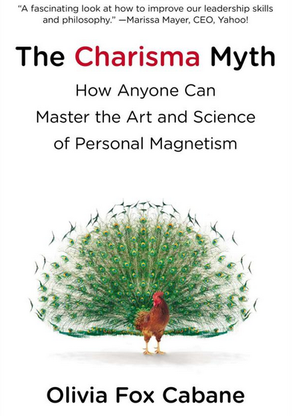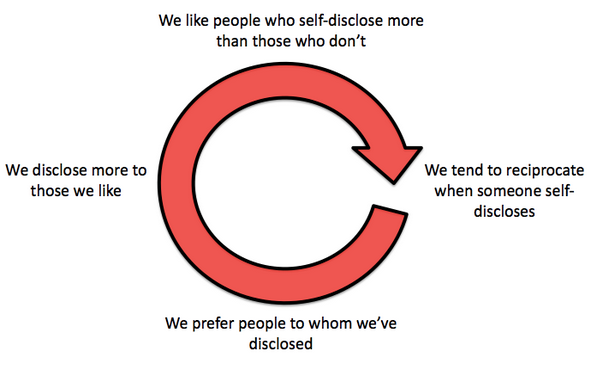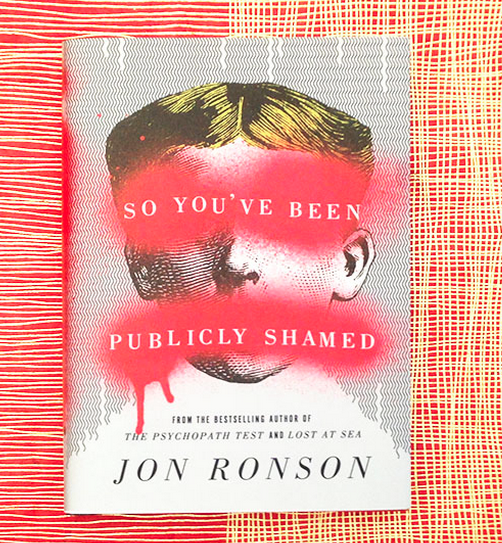|
"I'm socially awkward."
"I have, like, zero social skills." "I don't want to go to the party because I never know what to do at parties." We've all heard -- or even uttered -- such phrases. Maybe when you hear it, you feel sympathetic. But when I hear it, I feel slightly annoyed. "Socially awkward" is a choice. Saying you have "bad social skills," to me, sounds like saying, "I'm bad at basketball," when you haven't played since middle school. If you haven't practiced and/or actively tried to improve your social skills, then you're selling yourself short and missing out on opportunities. Because social skills are exactly that: skills. You're born able to learn them. But you're not born with them. It's the same way with language. And playfulness.
You can develop and increase you social skills. Some take time and practice. Others, you can learn right now. For example:
1. Practice and improve your charisma. History is full of examples of famously "charismatic" people... who didn't start out that way. Steve Jobs is one. Marilyn Monroe is another. In fact, to quote Olivia Fox Cabane, author of The Charisma Myth: How Anyone Can Master the Art and Science of Personal Magnetism (which everyone, even super charismatic, people should read): It was 1955, and Marilyn Monroe wanted to prove a point. She was the talk of Hollywood -- an international sensation with several leading roles under her belt. Yet when she entered Grand Central Station with a photographer in tow, no one noticed. No one noticed her as she stood waiting for train. No one noticed when she boarded her train and rode quietly to her destination. When she got off her train, she turned to her photographer and said, "So, do you want to see her? The Marilyn?" She didn't say or do anything. She just changed her pose, changed the expression on her face, and "time stood still, as did the people around her." That is, until she was swamped by fans. People tend to think of charisma as a magical, innate je ne sais quoi. Something you're born with, or you're not. But research shows that charisma, is not a trait, but a skill. Charisma is the result of specific thoughts and behaviors. Behaviors we're born able to learn... but that some people learn better, sooner or differently than others. According to Cabane, there are three main components of charisma: behaviors of warmth: behaviors of behaviors of warmth, behaviors of presence, and behaviors of power. This makes sense, from an evolutionary perspective. In order to maximize our chances of survival, we should be drawn to people who are both powerful (so they can help us fight off enemies, hunt, and gather resources) and who like us (as indicated by presence and warmth -- because what good is it to be around powerful people, if they don't like us enough to help us through hardship?). You can read more about this in These Specific Behaviors Will Make You More Charismatic, Starting RIGHT Now, or check out Cabane's book. 2. Stop asking people, "What do you do for a living?" Instead, ask, "What're you up to these days? I had two reunions last year -- a college five-year and high school ten-year. And they were incredibly awesome and I was super stoked and I wouldn't have traded the experiences for anything.
Wooo! Alumni Row!
Yet, really sadly... a lot of people -- especially recent graduates, who may still be finding their way -- have anxiety about these reunions, because they're underemployed, unemployed, or feel like they haven't accomplished much compared to their peers. (I always say it's good to compare yourself to others... but this isn't what I meant.)
I even know people who skipped reunion altogether because of this anxiety. That's why I seldom ask people about their day job. Instead, I ask something to the effect of, "What have you been up to lately?" This makes for much more interesting conversations than, "What's your job?" because people can go wherever they want with this. They can talk about work. Or they can talk about how they just got engaged, finished their first marathon, or returned from an exciting trip to Sri Lanka. They can talk about competing in the semi-finals of a songwriting contest, getting scuba certified... or even just learning to play the piano. 3. Learn to be rude. In social situations, people will try to get you to do things you don't want to do. Whether that's donating to their charity, spending time doing something you don't want to do... or going with them to their van to see some baby rabbits.
If you're someone who often gets suckered into wasting time, money, and effort on things you don't care about, do some cognitive reframing, right now.
If you've expressed that you don't want to do something, and the person you're talking to tries to get you to do it, anyway, they are the one who's being rude -- not you. Remember that. You are not the one who's being rude. Still not convinced? Then recall, as I wrote in Why Most People Suck at Saying No - And How You Can Start Improving Today: Since people are generally cooperative and social, we overestimate the cost of saying no. (Which is why, generally, if you ask for something, people say yes — even if the reason you give for the ask is complete gibberish. Asking, "Can I cut you in line to use the copier, because I am in a rush?" is just as effective as asking, “Can I cut you in line to use the copier, because I need to use the copier?”) I repeat: WE ROUTINELY OVERESTIMATE THE COST OF SAYING NO. Keep this in mind next time someone asks you for something. Saying no isn’t as bad as you think. Read more > And on that note: 4. Familiarize yourself with common persuasion and manipulation techniques. There are certain, proven methods that will increase your odds of getting what you want. Some people have actively studied them. Others have unconsciously learned them. Either way, you should be familiar with these techniques, so you can defend yourself against them. A few that I mentioned in Why Most People Suck at Saying No - And How You Can Start Improving Today include:
5. Don't be afraid to self-disclose. Obviously, the level of self-disclosure you go into depends on the situation and context (don't bring personal problems to work, etc.). But, as I wrote in Kids Make Friends More Easily Than You. Here's Why, In one study, psychologists hijacked a freshman orientation. They divided students into two groups. The first did typical icebreakers – e.g., “What’s your name, where are you from, what’s the last movie you saw?” The second did slightly stranger ones. Like, “Stare into your partner’s eyes without talking for one whole minute.” Or, “When was the last time you cried?” The second group’s activities sound thoroughly cringe-worthy and horrible… but its participants actually felt more positive feelings towards each other at the end of the day. These feelings lasted the entire semester. Other studies (including Collin and Miller, 1994) have shown that self-disclosure – which way too many young people consider “awkward” – is an important part of liking and bonding. And it’s a bit of a cycle. Take a look:
Since I published that post, the 36 Questions That Will Make a Stranger Fall in Love With You have become quite popular. I haven't personally tried them -- for me, authenticity and presence matter a lot, and showing up to a date or friend date with a list of questions someone else wrote would feel weird.
But for the right people, I completely understand why this would lead to feelings of closeness and connection. Especially in a world where so many young adults are terrified of disclosing their feelings to others. On a similar note, why not go ahead and: 6. Ask interesting questions. Last summer, I met a guy at a party. We totally hit it off and have been BFFs ever since. He recently told me that he remembers the first thing I said to him: "You're not one of those pro-union people, are you?" He told me that that really caught his attention, and he wanted to keep talking to me because we were already past the surface-level small-talk. We dove right in to something kind of controversial, and it felt like we knew each other a little more than we did. He told me that he recently read an article that stated the same thing -- if you say something a little controversial or interesting at the beginning of a conversation, everything gets a little more intense, interesting, and memorable. Not sure how to proceed from here? Then maybe you need to read more books and newspapers. Because off the top of my head, I can think of dozens of conversations I've started based on books I've read recently. For example:
If you want to have an interaction that's fun, memorable and engaging, don't be boring and interchangeable. Have knowledge and opinions. Give your conversation partner an intellectual adventure. And! On a similar note: 7. Want to seem more attractive to your date? Terrify them. Psychology research shows that the human fight-or-flight response is physiologically identical to the human sexual response -- and that, sometimes, our brains misattribute our body's response to one thing (say, walking across a scary bridge) to something else (the girl standing on the other side of the bridge).
Ryan = Lion ???
In other words, you walk across a scary bridge. Your heart starts pounding, your palms start sweating, you get butterflies in your stomach (because you're scared)... but then you talk to a girl on the other side of the bridge, and your brain thinks, "My heart is pounding because of her."
So don't take your date out to do something boring and interchangeable, like coffee. Do something challenging and exciting. They'll find you more attractive because of it. (Read more about misattribution of physiological arousal.) And, to clarify, this isn't a manipulation or hack. It's something you should incorporate into every part of your life. Live like you're traveling! Don't be boring. Because trying new games, challenges and adventures won't just make your date find you more attractive -- it will make your spouse or long-term partner feel more connected to you. At least, that's what Art Aron and his colleagues at Berkeley found in their now-famous study on romantic relationships. 8. Is someone doing something that bothers you? Tell them. Research shows that humans generally cannot read each other's minds. Chances are, that guy next to you on the plane or that gal at your workplace isn't doing that annoying thing to annoy you -- they're doing it because they have no idea it's annoying you. Research also shows that passive aggression (posting someone's picture on Twitter and calling them out for their annoying behavior instead of just saying, "Hey, that bothers me. Can you stop?) is unhealthy. It makes the whole rest of your life feel a little worse. (Your brain isn't perfectly compartmentalized -- there is definitely such a thing as overflow of suppressed negative emotion.) Also -- if you tell people what they're doing bothers you... they'll stop. And then you don't have to deal with the annoying behavior anymore. For example, if someone on your bus is "manspreading":
You have options other than glaring and posting a photo of his crotch online. For example:
Likewise, as I wrote in Behold: Woman's Most Powerful Weapon Against Mansplaining: Your number one best weapon against manologues is your own voice. When a man (or woman) starts blabbing on and on about stuff I already know, I don't expect them to magically read my mind and know I'm bored, annoyed or already well-aware of this. I open my mouth and say something -- usually along the lines of:
Etc. Another powerful weapon is the "touch interrupt," which I described in 3 Steps to the Perfect Graceful Exit (That Will Increase Your Warmth, Power, and Charisma): Ever told yourself, "I'll excuse myself as soon as this guy stops talking," only to have the guy keep talking to infinity and beyond? If you're ready to make your exit, don't count on the conversation magically knowing that, and ending. Instead, briefly touch the person who is speaking on the arm or shoulder. This will create a pause in the conversation, and direct the speaker (and listeners') attention to you. As an added bonus, human touch can have a warm, bonding effect. Done correctly, it is a form of positive politeness, or politeness that shows closeness and liking (vs. negative politeness, which shows boundaries and respect)... But touching someone is also a subtle display of power. In other words, the Touch Interrupt is not only an effective way to excuse yourself from the conversation. It's also a warmth thing, and a power thing. Making it a charisma thing. Read more > Also worth noting: when you publicly shame someone, you could literally ruin their life. It is cruel, and there is no reason to do this to someone you don't even know, who might not even know they're bothering you. See also: Jon Ronson's So You've Been Publicly Shamed: 9. Cut back on hedging language -- you're only undermining yourself. As I wrote in Hedging Language is Alive and Well -- C'mon Ladies! Stand Up For Yourselves: Hedging is the term linguists use to describe words and strategies to soften what you're saying. Instead of, "Bill, that's not going to work because the product doesn't have those specs," hedgers say, "Hey, Bill? Don't you think that we should maybe come up with another idea? I'm not sure if the product has those specs, does it?" When you use hedging language, you sound cautious and timid. You don't sound like you're confident in your idea, or like you think your opinion matters. And. When you hedge, you open yourself up to being steamrolled and ignored. For example: Me: Bill, that's not going to work because the product doesn't have those specs. Bill: Really? Oh. What about if _____? Vs. Hedging Me: Hey, Bill? Don't you think that we should maybe come up with another idea? I'm not sure if the product has those specs, does it? Bill: I like this idea -- the specs look fine. If you want to exude more power (and, therefore, charisma), and if you're tired of people ignoring your ideas and contributions, stop blaming other people. Look at what you might be doing wrong, and fix it. *** What about you? Do you have any social psychology or life hacks that have improved your life? Share them in the comments!
1 Comment
Jadzia
5/4/2017 06:29:50 am
I once got a work experience placement during my law degree when I got talking to a lawyer at an event. Somehow I ended up telling jokes that were topical in Stalinist Russia. Why? I was reading a book on Russian humour at the time. It broke the ice, especially as the woman was shocked to hear that not only did these very grim jokes reflect the reality of the regime, telling them in Stalinist Russia was a serious criminal offence. Later, I read guides to how to impress lawyers into giving you work experience placements. It was all pretty bland and that was not on the list.
Reply
Leave a Reply. |
About the Author

Eva is a content specialist with a passion for play, travel... and a little bit of girl power. Read more >
Want to support The Happy Talent? CLICK HERE!
Or Find me on Patreon!
What's Popular on The Happy Talent:
Trending in Dating and Relationships:
What's Popular in Science: Playfulness and Leisure Skills:
Popular in Psychology and Social Skills:
Categories
All
|




































 RSS Feed
RSS Feed